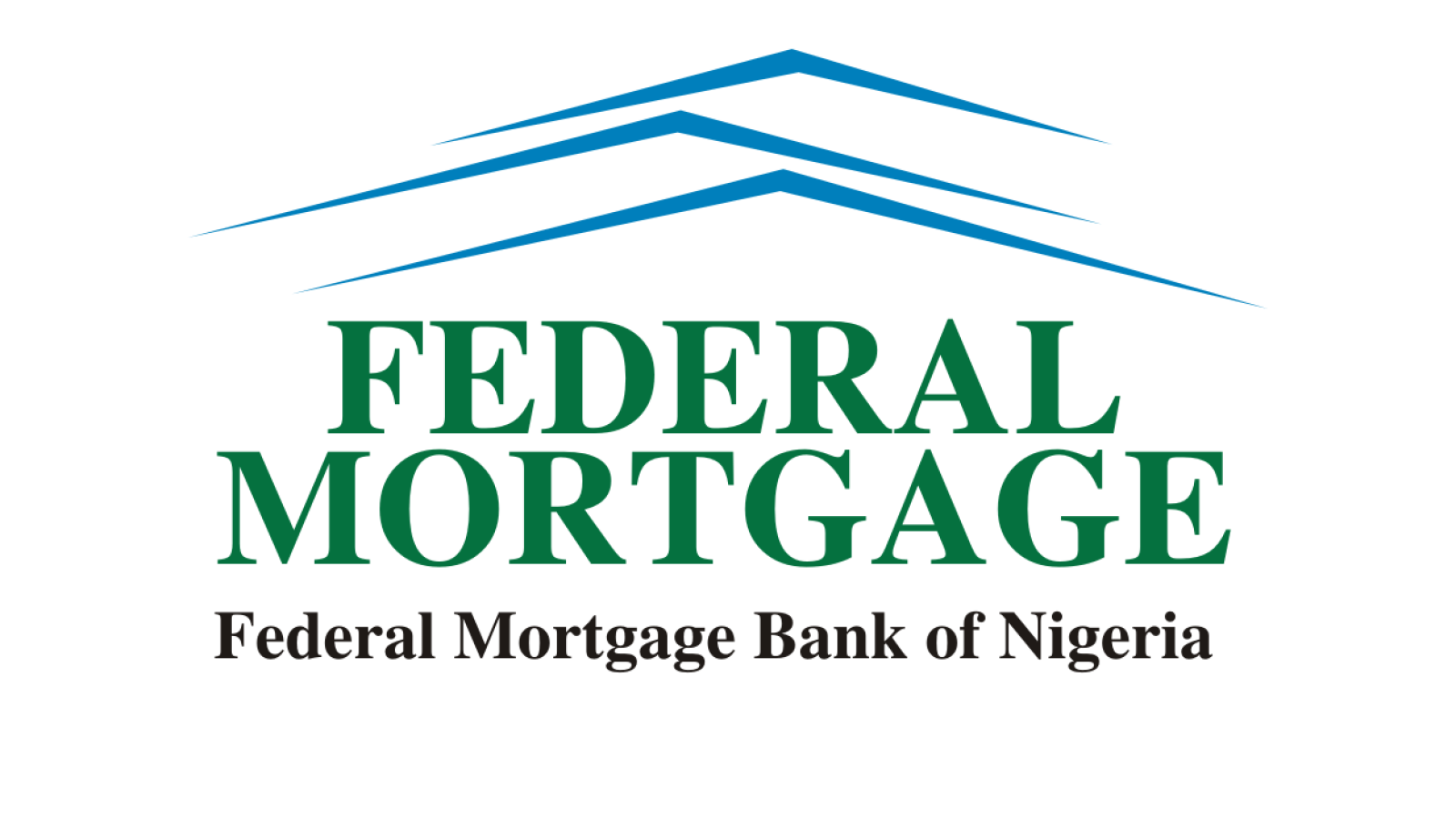General
FMBN Finances 27,584 Housing Units to Cut Deficit

By Adedapo Adesanya
In a bid to address the housing deficit in Nigeria, the Federal Mortgage Bank of Nigeria (FMBN) has said it was targeting affordable home ownership for the Low and Medium Income (LMI) market segment.
Managing Director of FMBN, Mr Ahmed Dangiwa, said this during the ongoing National House Fair 3.0 in Abuja themed New Economy: Amplifying the Impacts and Possibilities of Real Estate Utilising Technology.
“The future growth and development of the Nigerian housing sector, especially the mortgage sub-sector, is predicated on expanding housing access and availability for the middle class,” Mr Dangiwa said.
He noted that the LMI segment accounted for about 90 percent of the Nigerian population and that with government assisted funds, it would be possible to improve affordability for the middle-income market.
He revealed that the National Housing Fund had on board 4,927,407 contributors and 23,387 organisations registered through the bank and has disbursed N226.6 billion as loan through the National Housing Fund (NHF).
“Construction of 27,584 housing units financed to date, 20,591 NHF mortgage loans granted to NHF contributors while 27,247 housing micro-loans of N28.9 billion disbursed and more than N31.1 billion was refunded to 273,485 retirees,’’ Mr Dangiwa said.
Mr Dangiwa further said that the adoption of a multi-dimensional approach to housing finance in Nigeria must be encouraged and also called on the need to strengthen government institutions in order to deliver assist-funding and collaboration among relevant stakeholders.
On her part, the Convener of the fair and Managing Director, Bstan Mortgage and Cooperation, Mrs Becky Damilola-Oke, said that inadequate housing could affect the security, physical health and privacy of man.
Mrs Damilola-Oke said that housing policy was a tool that was used in town planning for solving housing problems and consequently for the achievement of sustainable housing.
She said that town planning focuses on spatial arrangement of urban and rural land use for the purpose of creating orderly, economical and functional efficient.
Mrs Damilola-Oke said that policy instrument was one of the ways of tracking housing problems and said that the new economy could be used to embrace housing-technology innovations.
General
Court Schedules April 23 for El-Rufai’s Arraignment

By Adedapo Adesanya
Justice Joyce Abdulmalik of the Federal High Court in Abuja has adjourned the case against former Kaduna State Governor, Mr Nasir El-Rufai, to April 23 for arraignment.
The Department of State Services (DSS) filed a three-count charge against Mr El-Rufai for the alleged unlawful interception of communications, linked to remarks he made during a television interview. It was alleged that Mr El-Rufai’s actions contravened provisions of the Cybercrimes (Prohibition, Prevention, etc.) Amendment Act, 2024, and the Nigerian Communications Act, 2003.
The court had earlier fixed February 25 for the former governor’s arraignment, but he was absent during Wednesday’s proceedings.
Counsel for the DSS, Mr Oluwole Aladedoyin, informed the court that the former governor is still in the custody of the Independent Corrupt Practices and Other Related Offences Commission (ICPC), where he is under investigation for alleged misappropriation of funds.
This prompted the judge to adjourn the case to April 23 for arraignment.
Meanwhile, the former Kaduna governor has filed a suit in response to Charge Number FHC/ABJ/CR/99/2026 instituted against him at the Federal High Court in Abuja.
The application contends that the prosecution violates several constitutional provisions that breach El-Rufai’s fundamental rights, including Section 36(5) of the 1999 Constitution, which guarantees the presumption of innocence; Section 36(11), which provides for the right against self-incrimination; Section 36(12), which requires that offences be defined in written law; as well as Sections 39 and 40, which guarantee the rights to freedom of expression and freedom of association, respectively.
Mr El-Rufai’s motion is praying the court for: “An Order quashing and/or striking out Charge No. FHC/ABJ/CR/99/2026 (as contained in the charge dated February 16, 2026) for being incompetent, for disclosing no offence known to law, and for constituting a gross abuse of court process.
An Order discharging the defendant/applicant on the ground that the charge discloses no prima facie case against him.
He is equally seeking an order awarding the sum of N2 billion as costs against the secret police (acting through its prosecuting counsel) for the abuse and misuse of the court process, and the egregious, reckless, and unconstitutional misuse of the criminal justice system to harass, embarrass, and publicly victimise him.
The suit, which cites 17 grounds for seeking the dismissal of the charges, was filed on 17 February 2023.
His lawyers notified the Director General of the DSS of the processes that they have filed in the matter via a letter dated 18th February. The letter also formally informed the DSS regarding the legal representatives of Mr El-Rufai and the names and addresses of his team of counsel.
The grounds cited in the motion seeking the dismissal of the charges include: their constitutional invalidity, lack of disclosure of a prima facie case, citing offences not known to law and failure to meet statutory conditions.
Other grounds cited include fatal duplicity and absence of evidence, lack of prosecutorial competence, the impermeable nature of the constitutional right against self-incrimination, bad faith, political persecution and abuse of court process.
General
Nigeria Signs Defence Joint Venture with Terra Industries

By Adedapo Adesanya
Nigeria has signed a joint venture with defence technology company, Terra Industries Limited, as part of efforts to boost the country’s defence industrial capacity and advance indigenous high-technology development.
The Defence Industries Corporation of Nigeria (DICON) and Terra signed a Memorandum of Understanding (MoU) for the establishment of the Joint Venture Company (JVC), both parties announced on Monday.
The partnership provides a robust framework for the local production, assembly, research and development (R&D), and training in high-technology systems, including drones, cybersecurity solutions, robotics, and other ancillary software and hardware platforms.
The MoU, executed pursuant to the DICON Act 2023, underscores DICON’s statutory mandate to collaborate with indigenous and foreign defence-related industries through Public-Private Partnerships. Under the agreement, the Joint Venture Company will operate as a subsidiary of DICON, jointly promoted and owned by DICON and Terra Industries, and duly incorporated in Nigeria.
This marks the latest move by Terra, which recently became a $100 million company, following recent raises from investors including Flutterwave CEO, Mr Gbenga Agboola, American actor Jared Leto as well as 8VC founded by the co-founder of Palantir Technologies Inc., Mr Joe Lonsdale. Other investors included Valor Equity Partners, Lux Capital, SV Angel, Leblon Capital GmbH, Silent Ventures LLC, Nova Global.
Terrahaptix, founded by Mr Nathan Nwachukwu and Mr Maxwell Maduka, are using the new funding to expand Terra’s manufacturing capacity as it expands into cross-border security and counter-terrorism.
The latest agreement with DICON is designed to establish advanced production and assembly lines for high-tech equipment within Nigeria, while promoting meaningful technology transfer, skills development, and specialised training for Nigerian personnel.
It also aims to strengthen local sourcing of raw materials, reduce dependence on imports, and enhance domestic industrial capacity and strategic autonomy. Additionally, the partnership will support the supply of security equipment to the wider Nigerian security agencies, other security agencies, positioning Nigeria as a competitive player in the global defence manufacturing sector.
Under the agreement, Terra Industries will provide technical expertise, professional services, and training, and will attract both local and foreign investment to strengthen the defence industrial ecosystem.
The company will also facilitate the procurement of production equipment, coordinate local and international training programmes, and provide access to manufacturing know-how, tooling, spare parts, and established defence sector supply chains.
Speaking on this, Mr Nathaniel Nwachukwu, CEO of Terra Industries, noted that the partnership “Demonstrates confidence in indigenous Nigerian engineering capability and creates a platform for sustainable defence technology development, innovation, and export competitiveness.”
On his part, Major General BI Alaya, the Director General of DICON, described the agreement as “A transformational step toward strengthening Nigeria’s defence manufacturing base, reducing import dependence, and positioning Nigeria as a regional hub for advanced innovation.”
The need for security has risen in recent years, as groups such as Islamic State and al-Qaeda are gaining ground in Africa, converging along a swathe of territory that stretches from Mali to Nigeria.
General
Deep Blue Project: Mobereola Seeks Air Force Support

By Adedapo Adesanya
The Director General of the Nigerian Maritime Administration and Safety Agency (NIMASA), Mr Dayo Mobereola, is seeking enhanced cooperation between the agency and the Nigerian Air Force (NAF) with the aim of strengthening tactical air support within the Deep Blue project.
During a courtesy visit last week, Mr Mobereola told the Chief of Air Staff, Air Marshall S. K. Aneke at the NAF Headquarters in Abuja, that the Air Force was a strategic partner in enhancing maritime security in Nigeria and sustaining the momentum of the Deep Blue Project’s success.
According to the DG, “We are here to seek the Air Force’s support, given the importance of tactical air surveillance to the Deep Blue Project. Nigeria is the only African country with a record of zero piracy within the last 4 years. The Deep Blue Project platforms have been used to achieve zero piracy and sea robberies in the Gulf of Guinea, and we need your collaboration to sustain this momentum”.
He further emphasised that international trade depends on security, which is why vessels prefer to go to or transit through countries where they are secured. “With the traffic we have now, we need to show more security might through collaboration to strengthen our trade viability because of the risks attached to our route. We need these collaborations to sustain what we have achieved so far with the Deep Blue Project”.
The NIMASA DG expressed hope that the collaboration with the Nigeria Air Force will reduce response time.
On his part, the Chief of Air Staff, Air Marshall S.K. Aneke, noted that the Air Force desires to be “a very supportive and collaborative partner with NIMASA and is ready to match the Agency step by step and side by side to achieve the desired results.”
He noted that “collaboration between NIMASA and the Nigerian Air Force under the Deep Blue Project can be strengthened through a joint strategic framework, integrated command structures, and a standing steering committee to ensure shared objectives and accountability.
“Establishing a joint maritime domain awareness fusion cell will enable real-time intelligence sharing, synchronised surveillance, and faster response to maritime threats and ensure sustained operational effectiveness across Nigeria’s territorial waters and exclusive economic zone,” he said, according to a statement.
The Air Force Chief added that the Air Force can also support NIMASA outside the Deep Blue Project operations by providing its own ISR platforms, tactical air support, and rapid airborne deployment for interdictions and search and rescue missions.
While thanking the NIMASA DG for the basic trainings the Agency has provided the aircraft pilots under the Deep Blue Project, Air Marshall Aneke also highlighted areas of operational challenges needing NIMASA’s attention to include bridging the communication gap between NAF operators and NIMASA, higher level and in-depth maintenance trainings, readily available fueling of aircrafts to avoid delays on missions, and provision of flying kits among others.
He therefore pledged the Air Force’s collaboration and assured that the request by NIMASA has been noted and that things will begin to move at thrice its speed going forward.
-

 Feature/OPED6 years ago
Feature/OPED6 years agoDavos was Different this year
-
Travel/Tourism10 years ago
Lagos Seals Western Lodge Hotel In Ikorodu
-

 Showbiz3 years ago
Showbiz3 years agoEstranged Lover Releases Videos of Empress Njamah Bathing
-

 Banking8 years ago
Banking8 years agoSort Codes of GTBank Branches in Nigeria
-

 Economy3 years ago
Economy3 years agoSubsidy Removal: CNG at N130 Per Litre Cheaper Than Petrol—IPMAN
-

 Banking3 years ago
Banking3 years agoSort Codes of UBA Branches in Nigeria
-

 Banking3 years ago
Banking3 years agoFirst Bank Announces Planned Downtime
-

 Sports3 years ago
Sports3 years agoHighest Paid Nigerian Footballer – How Much Do Nigerian Footballers Earn














